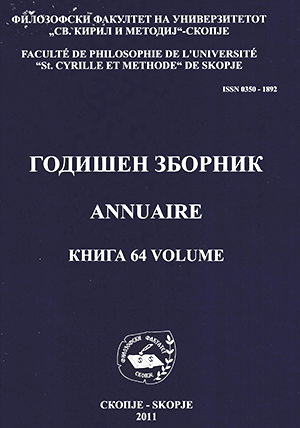EVALUATION OF CREATIVITY IN SCHOOL SETTING
DOI:
https://doi.org/10.37510/Keywords:
CREATIVITY, EVALUATION, QUANTITATIVE AND QUALITATIVE METHODS, LEARNINGAbstract
The paper is deveted ti the evaluation of creativity in school setting. Students and teachers are confronted with high demands concerning creativity, hut in school practice there is no support for achieving this goal to greater extent. Some possible reasons are difficulties in measurement of creative potential that is supposed to be reside to anyone, that is developing in the period of childhood nad youth, and that is going to be realized in adulthood trough creative products of larger social relevance. Tests of creativity show low validity and reliability, indicators of creativity are domain dependant, and criteria for estimation of creative products are vague. Researchers have dilemma concerning test application, but stil they do not give up of further work on creativity measuring. Contribution of qualitative approach to creativity points out that it offers other kind of information which completes the picture of creativity process, but it is less operative and more complex for application in school practice. The solution is found in expanding conception of creativity toward defining creative processes involved in the construction of personal knowledge and understanding such as one type of creativity different of little (everyday) and big (eminent) creativity. If creativity is the novel and personally meaningful interpretation of experiences, actions, and events, then the perspective for evaluation of creative potential is the observation of learning and looking for creative approach to the knowledge.
References
Downloads
Published
Issue
Section
License
Copyright (c) 2011 Violeta Arnaudova

This work is licensed under a Creative Commons Attribution 4.0 International License.





